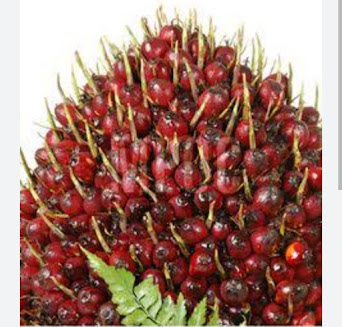PALM OIL ALTERNATIVES
PALM OIL ALTERNATIVES
INTRODUCTION:
Sustainable palm oil alternatives
are sought after because of social and environmental concerns associated with
conventional palm oil production. Palm oil is used in several products, ranging
from food to cosmetics, and its production has been linked to habitat
destruction, deforestation, biodiversity loss, and human rights issues. Here, I
will provide a brief explanation and reasons for sustainable palm oil
alternatives:
1. OIL FROM COCONUT: Coconut oil is a
versatile alternative used in cooking and personal care products. Coconut oil
is generally produced in a more sustainable manner compared to palm oil, with
many smallholders involved in its production.
2. HIGH OLEIC
SUNFLOWER OIL: This is a popular alternative to palm oil in food products. It
is high in monounsaturated fats, making it a healthier choice. Its production
is generally considered more sustainable and less harmful to the environment.
3.
OLIVE OIL: Extra virgin
olive oil is a healthy alternative in salad dressing and cooking. Olive oil is
known for its health benefits and is produced in a relatively sustainable
manner in many parts of the world.
4.
SHEA BUTTER: Shea butter is a common ingredient in skincare and
cosmetics products. It is derived from the nuts of the shea tree and is known
for its moisturizing properties. Shea butter production is typically more
sustainable and provides livelihoods for many African communities at large.
5. AVOCADO OIL: Oil from avocado is used in cooking and skincare products. It
is a healthy alternative rich in monounsaturated fats. Avocado cultivation
often requires fewer pesticides and the impact in the environment is low
compare to palm oil.
5.
CELL- CULTURED OIL: Emerging technologies are enabling the
production of plant-based oils through cell cultures. This approach removes the
need for traditional agriculture and has the potential to be a highly
sustainable alternative to palm oil.
7. ALGAE OILS: These are being developed as a sustainable alternative to palm
oil. Algae oil production does not involve habitat destruction or deforestation
rather it has the potential to be a more environmentally friendly option.
REASONS FOR SEEKING SUSTAINABLE PALM OIL ALTERNATIVES:
1. DEFORESTATION AND HABITAT LOSS: Conventional palm oil production involves
clearing forests, which contributes to habitat destruction, threatens
endangered species, and releases carbon emissions. Sustainable alternatives can
help reduce this impact on the environment.
2. BIODIVERSITY PRESERVATION: Biodiversity loss is a concern in palm
oil-producing countries. Sustainable alternatives can mitigate this by
promoting more ecologically responsible farming practices.
3. CLIMATE CHANGE: Deforestation associated with palm oil production release
greenhouse gases. Sustainable alternatives and practices can help reduce the
rate of emissions.
4. HUMAN RIGHTS: Palm oil production has been linked to human rights abuses, land
conflicts and including poor labour conditions. Sustainable alternatives can be
produced more ethically.
5. CONSUMER DEMAND: Consumers are increasingly concerned about the
environmental and social impact of the products they use. Sustainable
alternatives are sought to meet this demand and align with ethical values.
6. GOVERNMENT REGULATIONS: Some governments and organizations are imposing
regulations and standards on palm oil production, encouraging the use of
sustainable alternatives.
In conclusion, the search for sustainable palm oil alternatives is driven by the
need to address social and environmental issues associated with palm oil
production. A very many alternatives are available, each with its own pros and
cons. Producers consumers and policymakers play an important role in adopting and
promoting these alternatives to create a more responsible and sustainable
supply chain.
https://youtu.be/EpFIXllqt4k




Comments
Post a Comment